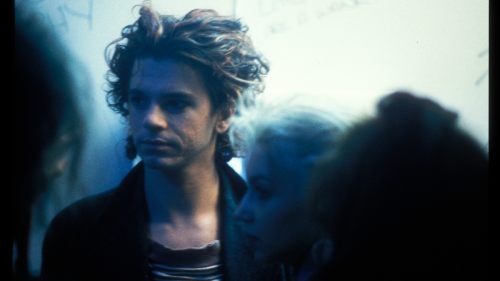Tribeca ’19 Review: LOST TRANSMISSIONS Never Finds The Right Frequency
Inspired by a true story, Katharine O’Brien’s directorial debut Lost Transmissions begins with a charming introduction between aspiring songwriter, Hannah (Juno Temple), and talented record producer, Theo (Simon Pegg). As their flirtatious friendship leads to a musical collaboration, Hannah learns that Theo is a schizophrenic, who refuses to take medication because he feels it’s a “shame to live life with a filter over it.” Hannah gets a big career break when she’s asked to write songs for pop princess, Dana Lee (Alexandra Daddario), but she’s constantly deterred and distracted by Theo’s worsening condition. With his close friends unable or, more to the point, unwilling to help him anymore, Hannah intervenes and does what she can to get him into treatment. Confronting her own issues with anti-depressants stifling her creativity, Hannah becomes determined to save Theo from himself. The obstacles the two face trying to get him the help he needs illustrate the troubling inadequacies of mental health care in America.
While the friendship that develops between Hannah and Theo starts out cute and fun, her determination to help this increasingly unstable and dangerous man she barely knows feels irrational. Sure, there’s the implication that her compassion stems from her own experience with mental illness, but this is never addressed beyond a few vague lines of dialogue. The film is at its strongest when focusing on the music. Alexandra Daddario is an amusing distraction from heavier themes as the spoiled pop star demanding Hannah write her a hit song like she’s ordering a latte. Simon Pegg is particularly effective in a scene in a vocal booth where he uses unorthodox methods to teach Hannah to let go of her inhibitions as she sings. His portrayal of Theo’s more erratic ravings about hearing secret transmissions in radio static never quite connect, likely because they become so repetitive. Juno Temple, who I love and hope we continue to see more of, is great at playing both the vulnerable and desperate sides of Hannah. But the plot limits the performances, seesawing back and forth too often between Theo manipulating the system and Hannah being too stubborn to give up.
O’Brien, who co-wrote The Automatic Hate in 2015, uses a handheld camera to create a naturalistic atmosphere that suits the intimacy of what is obviously a deeply personal character study. Because of this connection, it’s likely there are nuances here that only someone close to the story can see. Audiences will come away thinking the film was fine, but with very little to hold onto otherwise. The third act gets tangled as Hannah decides to go along with Theo’s delusions and enlists a woman he refers to as “The Princess of Time” to trick him into returning home to London to get the treatment he needs. In the end, he’s home and she’s singing her own songs, but there’s no resolve to anyone's story. Given that the film focuses on the impossibility of finding help when it’s needed most, perhaps the lack of resolution is intentional.



